Paws Off: Retired Chimps Denied New Lives at Sprawling Louisiana Sanctuary
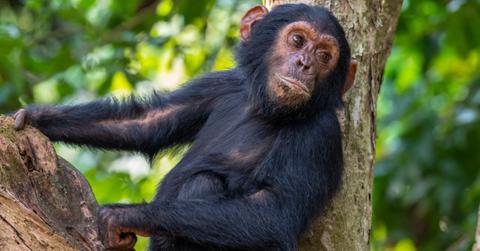
28 Retired lab chimpanzees remain at the New Mexico facility.
June 8 2024, Published 5:00 a.m. ET
Animal lovers and politicians are up in arms that the National Institute of Health is refusing to keep its paws off 28 lab chimps that are no longer being used for research — even though the law requires them to resettle the senior simians at a sprawling Louisiana sanctuary, RadarOnline.com has learned.
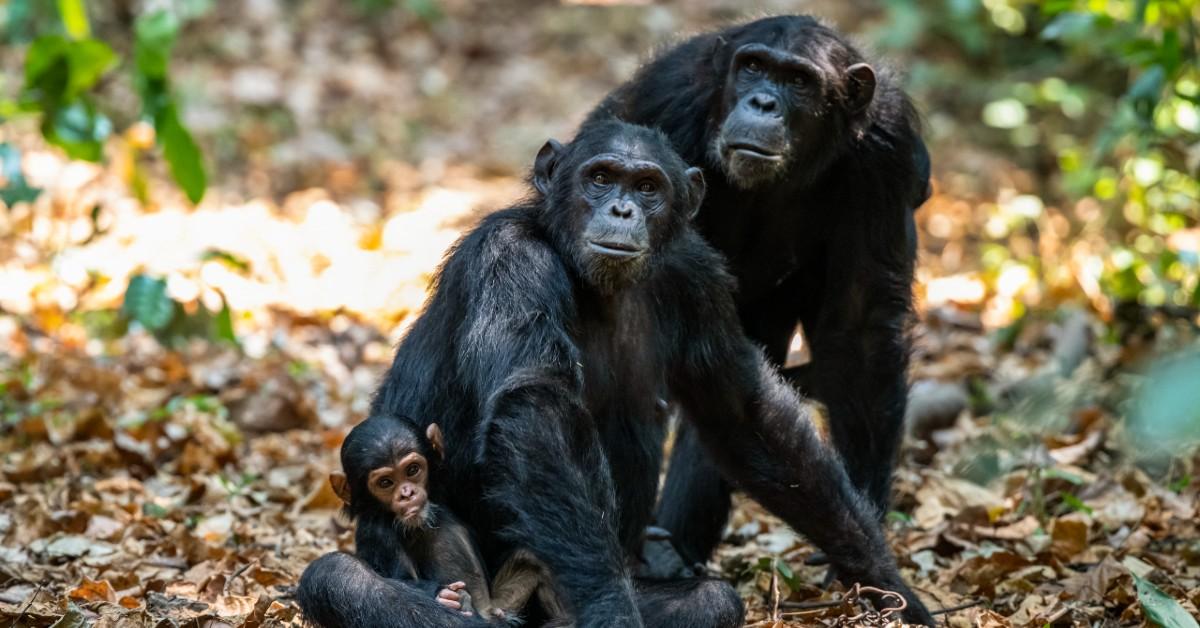
Chimps at the Alamogordo Primate Facility in New Mexico are being denied transport to a Louisiana sanctuary.
It has been over two decades since the Alamogordo Primate Facility in New Mexico stopped experimenting on the chimps — and a 2000 federal law — the CHIMP Act, for Chimpanzee Health Improvement Maintenance Protection — says they must ship the retired animals to Chimp Haven, a 200-acre protected wilderness for the big guys.
But there is one carve-out to the law the NIH says lets them off the hook — "moribund" animals, those that are near death, do not have to be moved — and the facility has claimed for YEARS the remaining chimps are on the brink of death, even though they don't seem to be dying off!
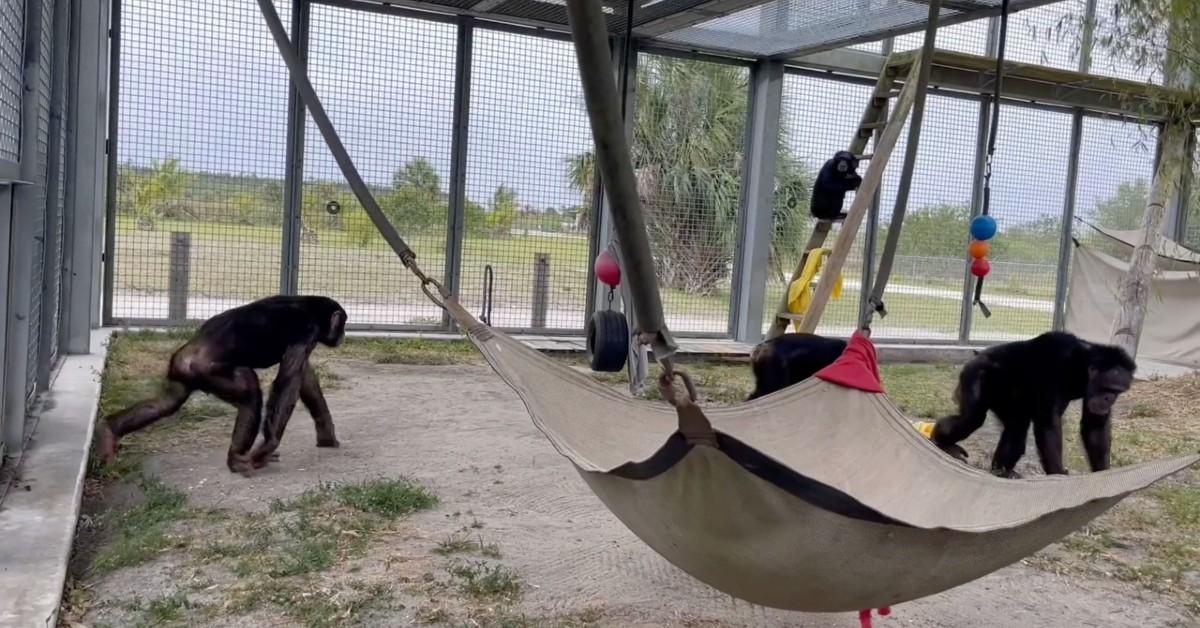
Federal law requires retired animals to be transferred to Chimp Haven, a 200-acre wilderness sanctuary.
"'Moribund' in human or veterinary medicine is generally understood to mean death is imminent," Dr. Felicia Nutter, a wildlife veterinarian at Tufts University explained to the Globe. "So any determination that chimps have been moribund for three years — there's something not right with that!"
The NIH retained a panel of veterinarians, who agreed that 44 of the original chimp population were too sick to be relocated to the retirement wonderland.
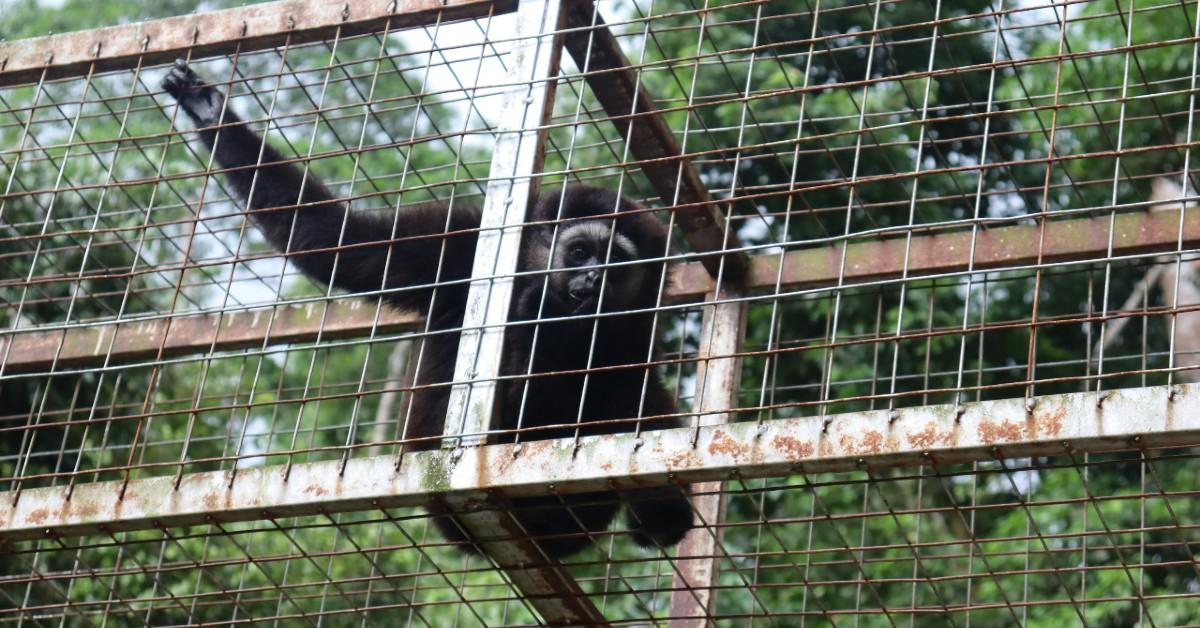
A panel of veterinarians claim the animals risk a 'fatal cardiac event' if they're moved.
"The physiological and psychological stressors associated with transportation, quarantine, change in social structure and change in human care provider could trigger a fatal cardiac event," grunted the panel.
But in 2022, a federal judge rule that the chimps were entitled to spend their final days in the sunshine — but there are still 28 chimps behind bars!
Never miss a story — sign up for the RadarOnline.com newsletter to get your daily dose of dope. Daily. Breaking. Celebrity news. All free.
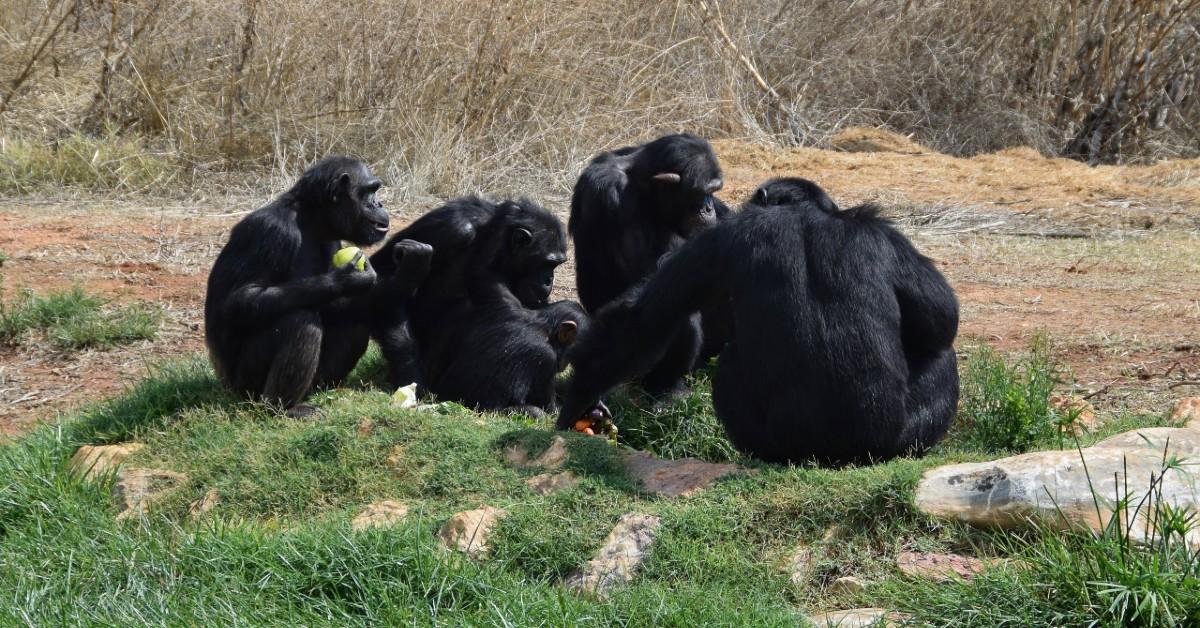
Politicians and advocates accused the facility of dragging their feet on transferring the 28 chimps.

"They really need to stop making excuses," said Kathleen Conlee, vice president of animal research issues at the Human Society. "A lot of chimpanzees have moved to sanctuary with health conditions and thrived in their new environment."
"We have found that chimpanzees are an incredibly resilient species and thrive in the sanctuary environment," echoes Rana Smith, president of the sanctuary.
And several U.S. lawmakers have been beating their chests over the NIH's obstinate refusal to move the monkeys.
"I have been advocating for a humane and permanent solution for these chimpanzees, so they can live out the rest of their lives in a non-laboratory sanctuary environments," barked Sen. Martin Heinrich of New Mexico, adding that the agency's foot-dragging "stands in direct violation of federal law."



